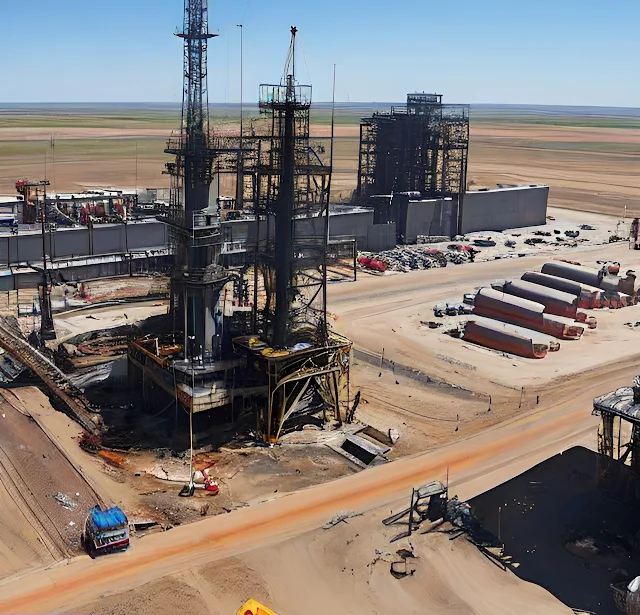Oilfield work is undeniably demanding and hazardous, with the potential for accidents and injuries always present. If you or a loved one has suffered an injury while working in an oilfield, finding the best oilfield injury lawyer is crucial to protect your rights and seek fair compensation. In this comprehensive guide, we will walk you through the essential steps to finding the right legal representation for your oilfield injury case, ensuring you have a skilled advocate by your side during this challenging time.
Step 1: Research and Compile a List of Oilfield Injury Lawyers
Begin your search by conducting thorough research and compiling a list of reputable oilfield injury lawyers in your area. Utilize online resources, legal directories, and recommendations from colleagues or friends who have experienced similar situations.
Step 2: Evaluate Qualifications and Experience
Once you have your list, evaluate the qualifications and experience of each oilfield injury lawyer. Consider their years of practice, specialization in personal injury and oilfield accidents, and their track record of successful case outcomes.
Step 3: Read Client Reviews and Testimonials
Reading client reviews and testimonials can provide valuable insights into the experiences of others who have worked with the oilfield injury lawyer. Look for feedback on their communication, professionalism, and ability to secure fair compensation for their clients.
Step 4: Schedule Consultations
Contact the top oilfield injury lawyers on your list and schedule consultations. Most lawyers offer free initial consultations, providing an opportunity to discuss your case, ask questions, and assess whether you feel comfortable working with them.
Step 5: Assess Communication and Personal Connection
During the consultations, pay attention to how the oilfield injury lawyer communicates with you. Choose a lawyer who listens attentively, communicates clearly, and demonstrates genuine concern for your well-being.
Step 6: Review Fee Structure and Payment Arrangements
Discuss the lawyer's fee structure and payment arrangements during the consultation. Many oilfield injury lawyers work on a contingency fee basis, meaning they only collect a fee if they secure compensation for you. Make sure you have a clear understanding of the fees and any additional costs.
Step 7: Verify Credentials and Professional Memberships
Verify the lawyer's credentials and any memberships in legal organizations related to oilfield injuries or personal injury law. These affiliations often indicate a commitment to staying up-to-date with the latest legal developments.
Step 8: Consider the Lawyer's Reputation and Standing
Take into account the reputation and standing of the oilfield injury lawyer in the legal community. A lawyer respected by peers and judges can bring additional credibility and influence to your case.
Step 9: Trust Your Instincts
Ultimately, trust your instincts when making the final decision. Choose an oilfield injury lawyer who instills confidence, demonstrates genuine empathy, and possesses the necessary skills and experience to handle your case effectively.
The Benefits of Hiring the Best Oilfield Injury Lawyer
Hiring the best oilfield injury lawyer for your case offers numerous advantages:
1. Expertise in Oilfield Injury Law: The best oilfield injury lawyers possess specialized knowledge in oilfield accident laws, ensuring they can build a strong case tailored to your specific situation.
2. Understanding of Industry Challenges: They understand the unique challenges and hazards that oilfield workers face, allowing them to identify liability and pursue fair compensation.
3. Thorough Assessment of Damages: The best oilfield injury lawyers will conduct a comprehensive evaluation of your damages, ensuring no losses are overlooked in your claim.
4. Skillful Negotiation: They are adept negotiators who will advocate on your behalf, seeking the best possible settlement with insurance companies or at-fault parties.
5. Aggressive Courtroom Representation: If a fair settlement cannot be reached, the best oilfield injury lawyers are prepared to provide assertive courtroom representation to pursue justice.
Conclusion: Your Path to Justice and Recovery
Experiencing an oilfield injury can be a life-changing event, but with the support and expertise of the best oilfield injury lawyer, you can navigate the legal process with confidence. By following this ultimate guide and trusting your instincts, you can find a skilled advocate who will fight tirelessly for your rights and help you achieve the compensation you deserve.
Remember, the keyword "oilfield injury lawyer" is your guiding light in finding the right legal representation. Take your time to research, schedule consultations, and choose a lawyer who will be your trusted partner on the path to justice and recovery.

Comments
Post a Comment